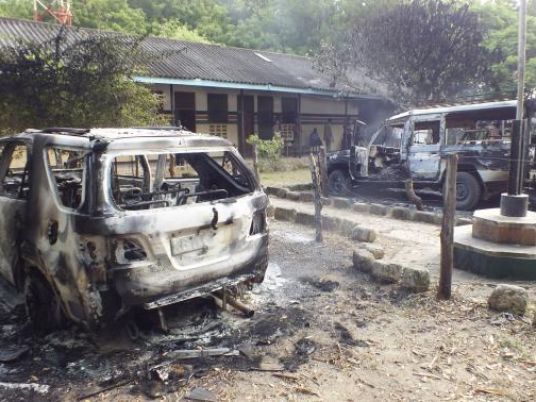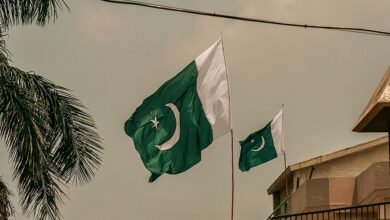
Somali-linked Islamists have killed at least 50 people in a Kenyan coastal town, executing men in front of their families and killing others who had gathered to watch World Cup soccer on television.
The al Shabaab group said on Monday that its commandos launched Sunday night's strike on Mpeketoni because Kenya had sent its forces to Somalia and accused Nairobi of assassinating Muslim scholars, a charge Kenyan officials have denied.
"Kenya is now officially a war zone and as such any tourists visiting the country do so at their own peril," it said, after staging the biggest assault since its gunmen attacked Nairobi's Westgate shopping mall in September, leaving 67 dead.
Mpeketoni, where shells of buildings smoldered and pools of blood congealed on the streets, is not normally a stopover for foreign visitors on Kenya's popular coast, but the attack is likely to hurt further an already struggling tourist industry.
Western nations have in recent weeks tightened their warnings about travel to Kenya, which has been hit by a spate of recent gun attacks and bombings in Nairobi and around the main port of Mombasa, though none have been as serious as Sunday's.
"The attackers were so many and were all armed with guns. They entered the video hall where we were watching a World Cup match and shot indiscriminately at us," Meshack Kimani told Reuters, adding about 10 people were killed there.
"They targeted only men but I was lucky. I escaped by hiding behind the door," he said.
Families watch men killed
Other witnesses said those gathering for the screenings fled just before the attackers arrived but were found in hiding places and then shot. Hotels, a bank and a police station were also attacked, leaving a trail of dead across the town.
"The wives who came to identify the bodies said the attackers forced them and their children to watch as they killed their husbands," said Peter Kamotho, a tailor volunteering at a makeshift morgue where bodies of 48 men lay under a cover.
A Reuters witness saw several men with shots directly to the head. Kamotho said they had been shot at close range.
Muiruri Kinyanjui, the Kenya Red Cross regional director for the coastal area, said the death toll was at least 50 but could rise because many residents were still unaccounted for while others had suffered serious injuries.
Many people fled to nearby forests for safety.
Some of the wounded were taken to a hospital in Lamu, a historic Arab trading port that is a big tourist attraction about 30 km (20 miles) from Mpeketoni, which is on the coastline between Mombasa and the Somali border in the north.
Kenyan hotels say bookings have dropped sharply because of recent attacks and Western travel warnings. Some hotels on the coast say they face closure, while some hoteliers inland who offer safaris say reservations are down by 30 percent or more. Witnesses said gunmen roamed for hours into Monday morning. Issah Birido, who hid up a tree shrouded in darkness, said he heard them chanting slogans and speaking in Somali, a language many Kenyan citizens with Somali origins also speak.
World cup alerts
Kenya, which has blamed al Shabaab for the previous attacks, had said it would be on alert during the World Cup to ensure public showings of matches were kept safe.
Although the gunmen struck a range of sites, the assault is likely to heighten worries in other African states such as Nigeria, which is battling the Boko Haram Islamist insurgency, that venues hosting World Cup screenings could be vulnerable.
After Westgate, al Shabaab had warned of more attacks, saying it was determined to drive out Kenyan forces battling the Islamist militants in Somalia along with other African peacekeepers. Kenya has repeatedly said it would not withdraw.
The al Shabaab statement also referred to the killing in drive-by shootings of at least three high-profile Kenyan Muslim preachers, seen as sympathetic to militant Islam. Supporters of the clerics have said their deaths were extra-judicial killings.
Kenya has denied the charge. Police have not found the gunmen behind those shootings.
Interior Minister Joseph Ole Lenku told a news conference before traveling to the area that the security forces would find the perpetrators, fending off questions about public anger at the failure of the government to do more to secure Kenya.
In an apparent swipe at political opponents, he said the government was cautioning "political leaders … to desist from destructive politics and ethnic profiling that may be responsible for this heinous act". He did not elaborate.




